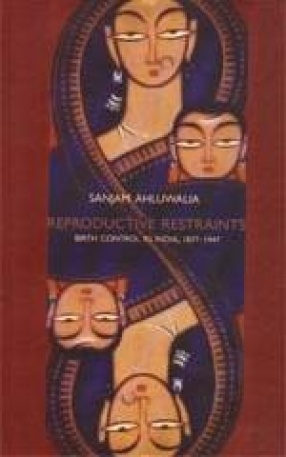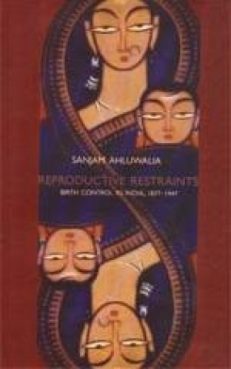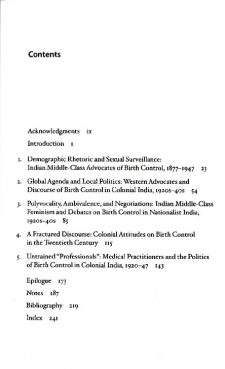This book is an investigation of elitist initiatives to limit population growth in India. Reproductive Restraints traces the history of contraception use and population management in colonial India, while illuminating its connection to contemporary debates in India and birth control movements in Great Britain and the United States. Sanjam Ahluwalia draws attention to the interactive and relational history of Indian birth control by including Western activists such as Margaret Sanger and Marie Stopes alongside important Indian campaigners. In revealing the elitist politics of middle-class feminists, Indian nationalists, Western activists, colonial authorities, and the medical establishment Ahluwalia finds that they all sought to rationalize procreation and regulate women while invoking competing notions of freedom, femininity and family. Ahluwalia’s remarkable interviews with practicing midwives in Rural Northern India fills a gaping void in the documentary history of birth control and shows that the movement has had title appeal to non-elite groups in India. Finding that Jaunpuri Women’s reproductive decisions are bound to their emotional, cultural, and economic reliance on family and community, Ahluwalia overwhelmingly demonstrates the limits of deploying universal liberal feminist categories to understand varying localized subjects. She argues that elitist birth control efforts, since colonial times, have failed to account for Indian women’s values and needs, working more to restrict reproductive rights rather than liberate subaltern Indian women.
Reproductive Restraints: Birth Control in India 1877-1947
In stock
Free & Quick Delivery Worldwide
reviews
Bibliographic information
Title
Reproductive Restraints: Birth Control in India 1877-1947
Author
Edition
1st ed.
Publisher
Permanent Black, 2008
ISBN
9788178242293
Length
xiv+252p., Notes; Bibliography; Index; 23cm.
Subjects







There are no reviews yet.